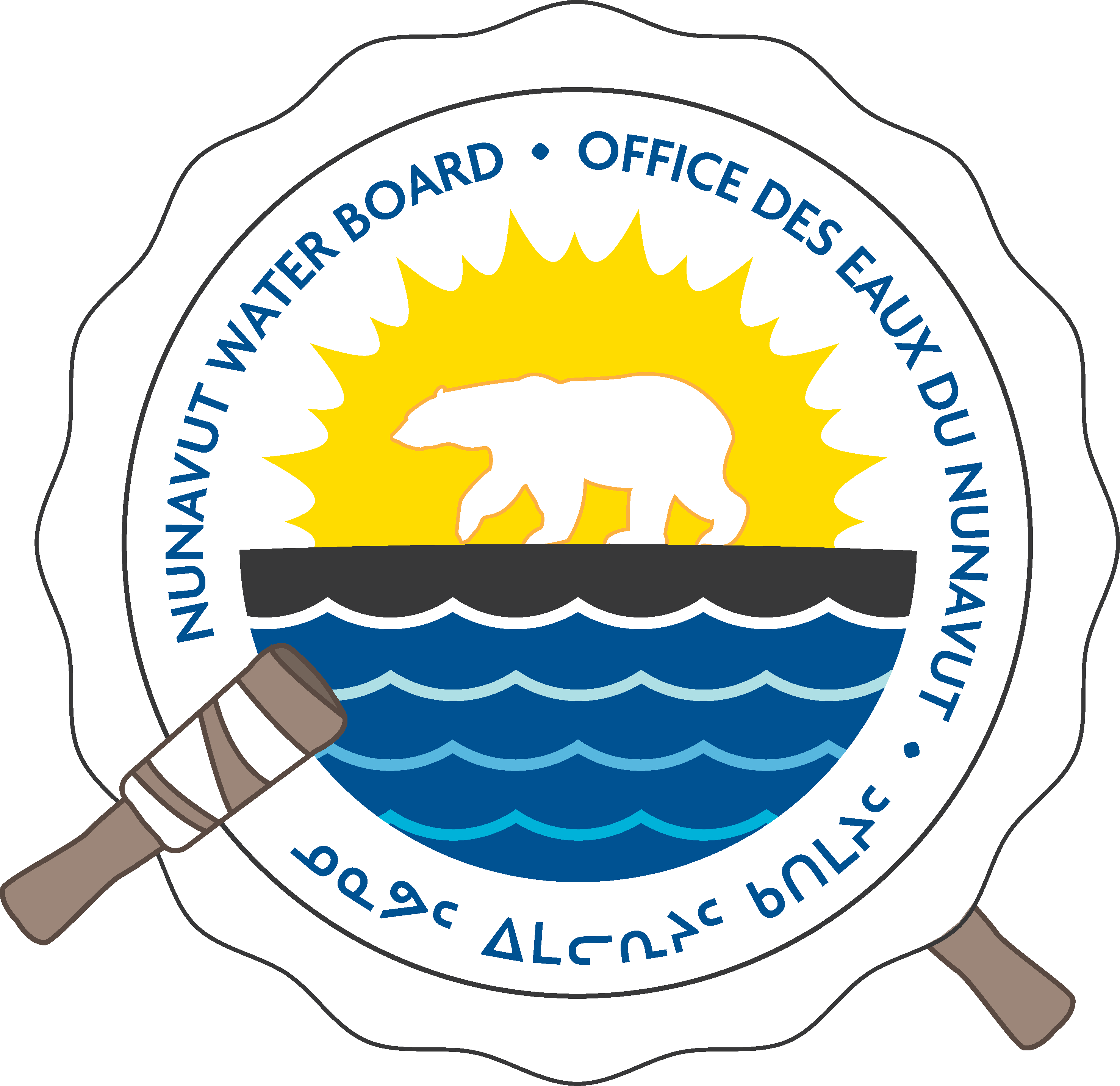Land Claims Agreement, Statutes & Regulations
Land Claims Agreement
In Nunavut, the Nunavut Land Claims Agreement (NLCA) sets out the process and establishes resource management boards for the sustainable and responsible management of water resources in the Territory. Article 13 of the NLCA establishes the Nunavut Water Board as an institution of public government which “shall have responsibilities and powers over the regulation, use and management of water in the Nunavut Settlement Area”. According to the NLCA, with the exception of domestic or emergency use of waters, “no person may use water or dispose of waste into water without the approval of the NWB”.
Statutes and Regulations
The powers and responsibilities of the NWB have been further defined by the Nunavut Waters and Nunavut Surface Rights Tribunal Act, S.C. 2002, c. 10 (the NWNSRTA) and the Nunavut Waters Regulations, SOR/2013-69 (the Regulations), which give effect to the Land Claim.
Under the NWNSRTA the NWB can issue, renew, amend and cancel a licence for the use of water or deposit of waste into water, with or without a public hearing, depending on the type of activity. Licences issued following a public hearing must be approved by the Minister of Aboriginal Affairs and Northern Development Canada. According to the NWNSRTA a licence is required for all water uses and deposits of waste into water with the exception of domestic or emergency use, water use in a National park, or as authorized by the Regulations.
The Nunavut Waters Regulations, enabled under the NWNSRTA, came into force April 2013 and give the NWB the power to authorize the use of water or deposit of waste without a license in the case of activities that do not have the potential to cause significant adverse environmental effects. These activities could include the construction of small water course crossings, small water course training activities, construction of temporary structures for the purposes of flood control, small storages of water, small camps, grass roots exploration, hydrostatic testing of unused storage tanks, or any other activity that uses less than 50 m3/day.
Enforcement
The NWB does not have enforcement powers. Once a licence or authorization is issued by the NWB, the jurisdiction of the NWB ceases. Compliance with the NWNRSTA and the Regulations or enforcement of water licences and authorizations for the use of water or deposits of waste fall under the jurisdiction of Aboriginal Affairs and Northern Development Canada, whose Minister appoints Inspectors for that purpose.

